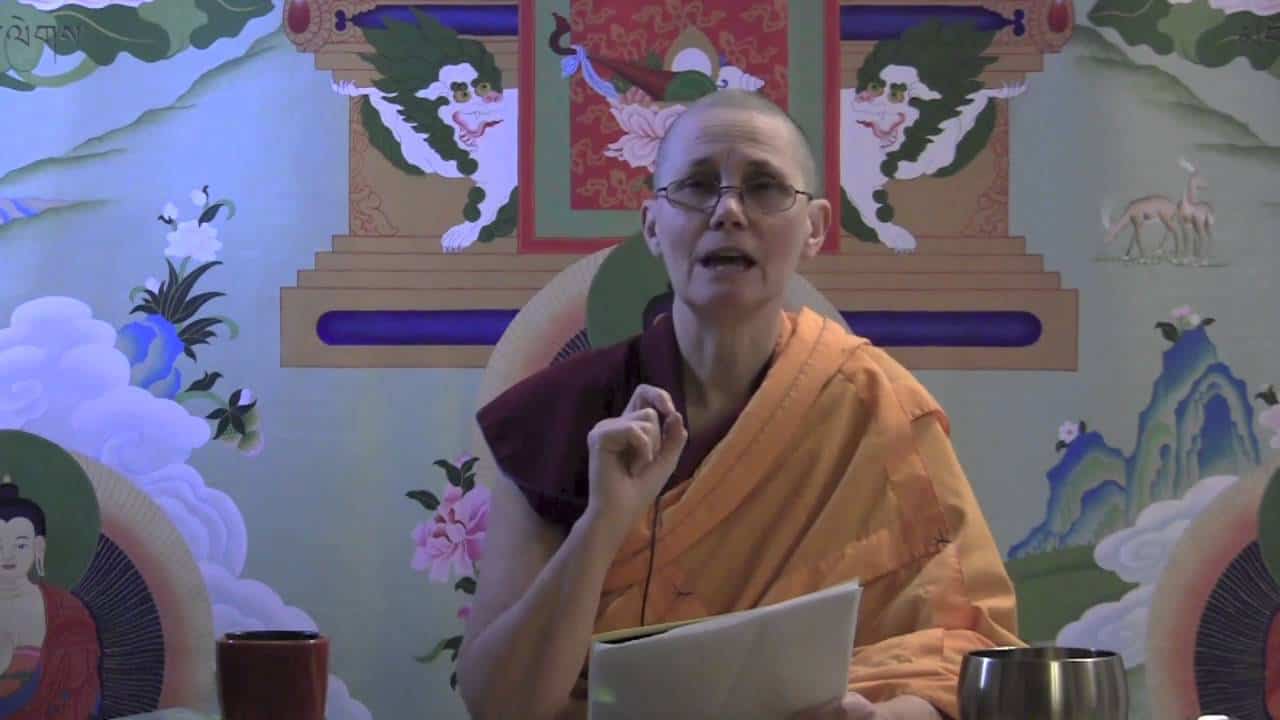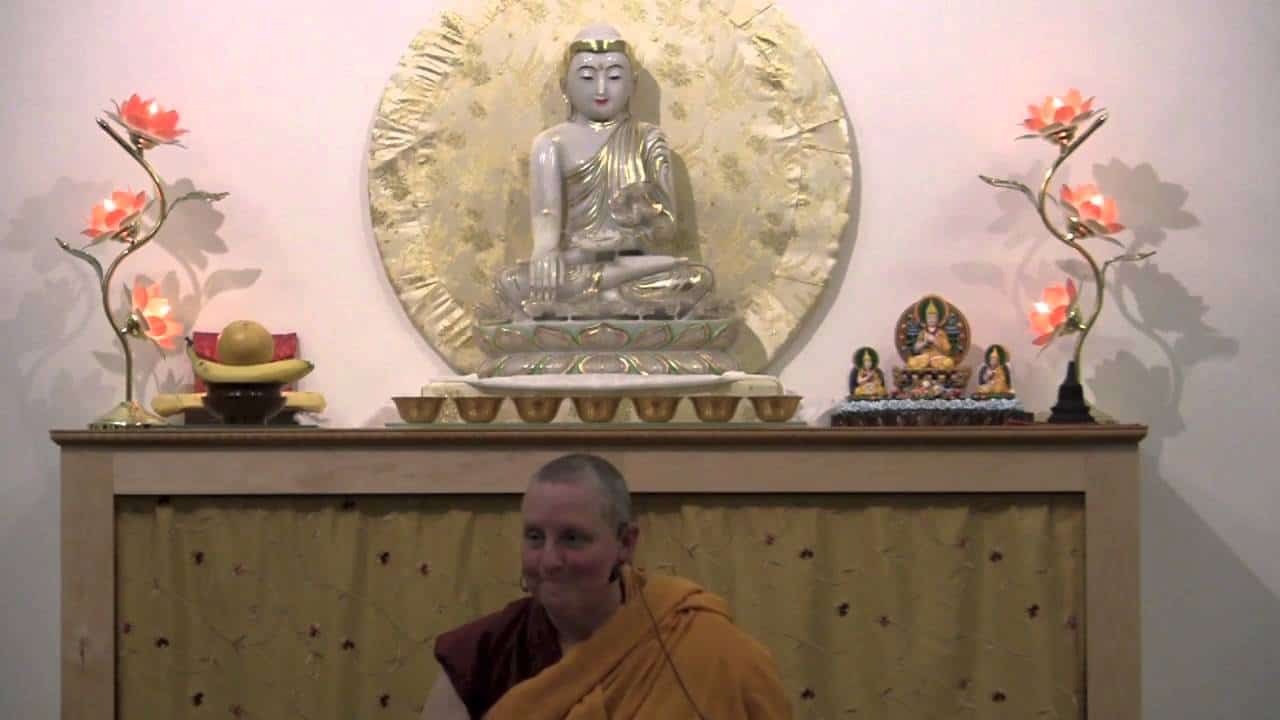Gomchen Lamrim review: Remembering death brings life to our practice
Part of a series of teachings on the Gomchen Lamrim by Gomchen Ngawang Drakpa. Visit Gomchen Lamrim Study Guide for a full list of contemplation points for the series.
- The ten innermost jewels of the Kadampa tradition
- The way to be in the present moment that gets you closer to liberation and awakening
- The six disadvantages of not remembering death
- The six benefits of remembering death
Gomchen Lamrim 21 Review: Remembering death (download)
Contemplation points
- Review the 10 Innermost Jewels of the Kadampa and consider that if you devote your whole life to the Dharma, you can get real practice done. Imagine your life completely devoted to the Dharma. How might that look? How would holding these attitudes make it easier to practice and to benefit others? What steps might you make today to start cultivating these attitudes in your life?
- Why is it that cleaning up our ethical conduct allows us to be present in each moment?
- Why is it said that if we don’t remember death and impermanence in the morning, afternoon, and evening that we have wasted the day?
- One of the disadvantages of not remembering death is that we don’t remember to practice because we’re focused on the happiness of just this life. What activities distract you from the path? What can you do to overcome these and shift your focus to the Dharma?
- Consider: Remembering death makes our spiritual practice easier. Why is this?
Venerable Thubten Tsultrim
Inspired by Kwan Yin, Chinese expression of the Buddha Compassion, Ven. Thubten Tsultrim began to explore Buddhism in 2009. As she learned that "real people like me" aspired to become awakened like Kwan Yin, she began to explore the potential to becoming a monastic, which led her to Sravasti Abbey. She first visited the Abbey in May, 2011. Ven. Tsultrim took refuge and joined the 2011 Exploring Monastic Life program, which inspired her to remain at Sravasti Abbey where she continues to learn and grow in the Dharma. The future Ven. Tsultrim took anagarika ordination in October of that year. On September 6, 2012, she received both the novice and training ordinations (sramanerika and siksamana) and became Ven. Thubten Tsultrim ("Ethical Conduct of the Buddha's Doctrine"). Ven. Tsultrim was born in New England and spent 20 years in the U.S. Navy. She began her career doing maintenance on aircraft, then worked as an Air Traffic Controller before retiring as a Damage Control Chief Petty Officer. She has also worked as a staff member at a residential treatment center for teenage girls. At the Abbey, she is responsible for maintaining the buildings and provides support for the abundant audio teachings that the Abbey generates and shares.


